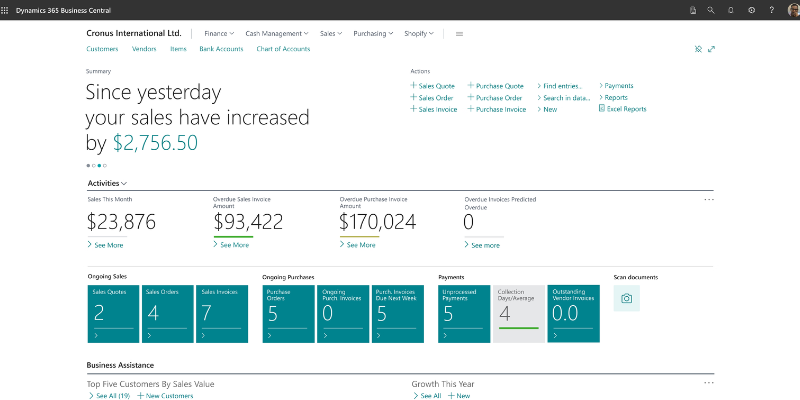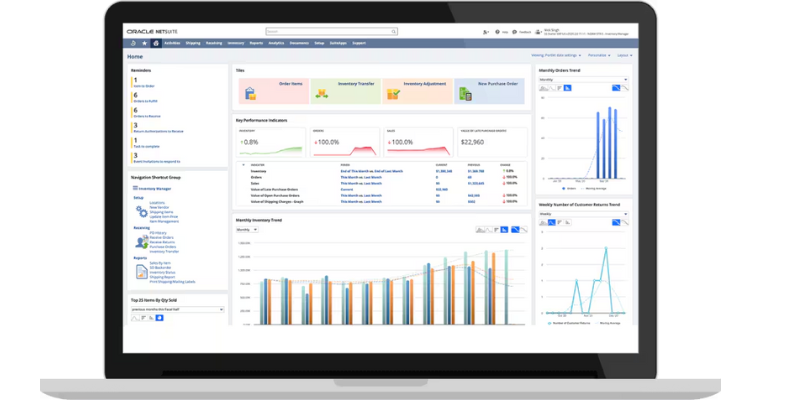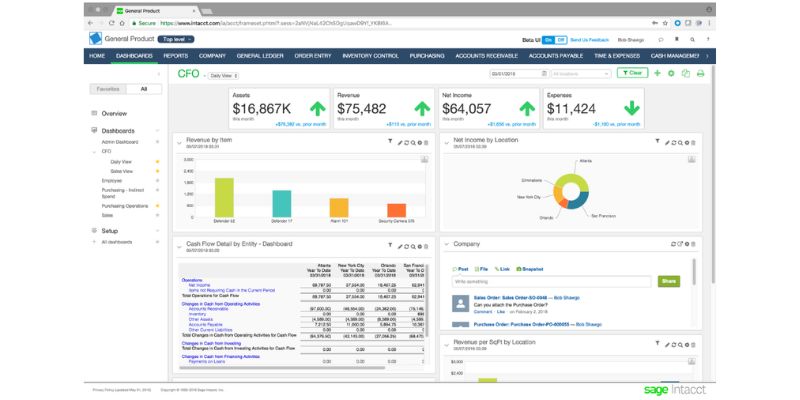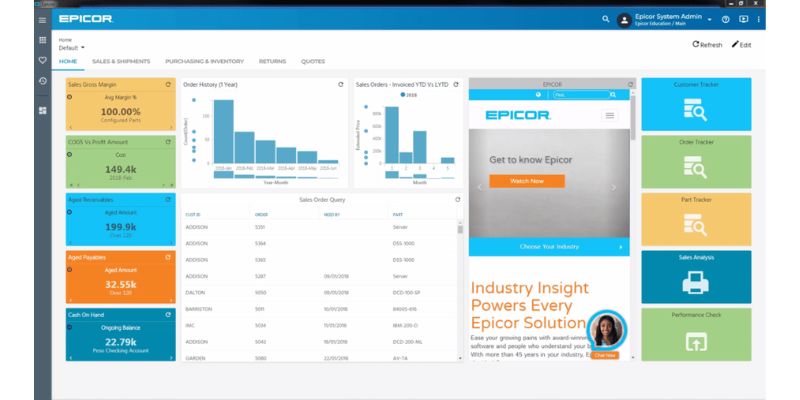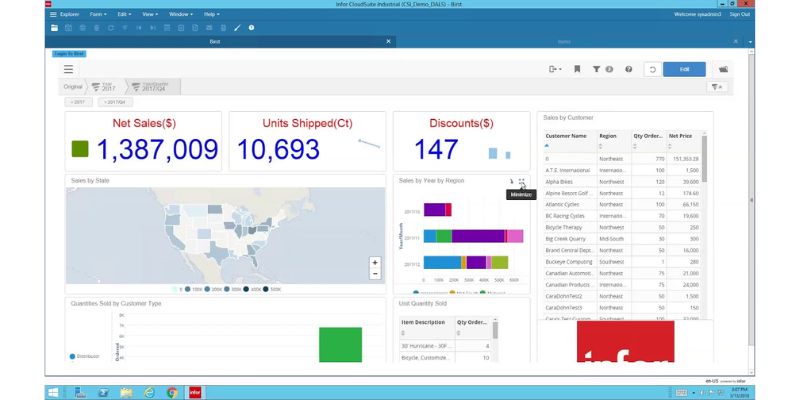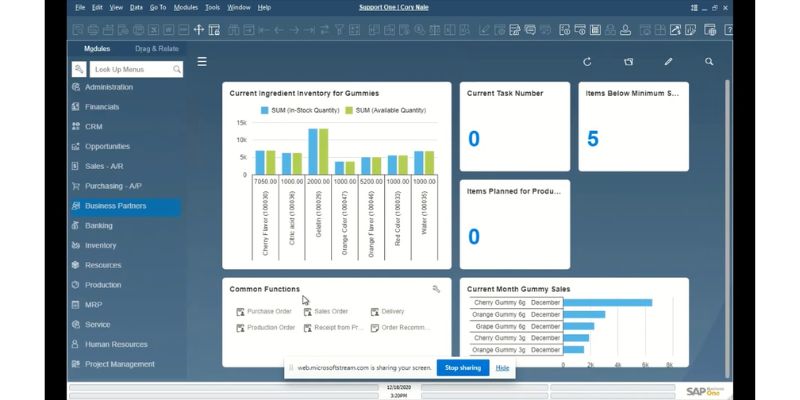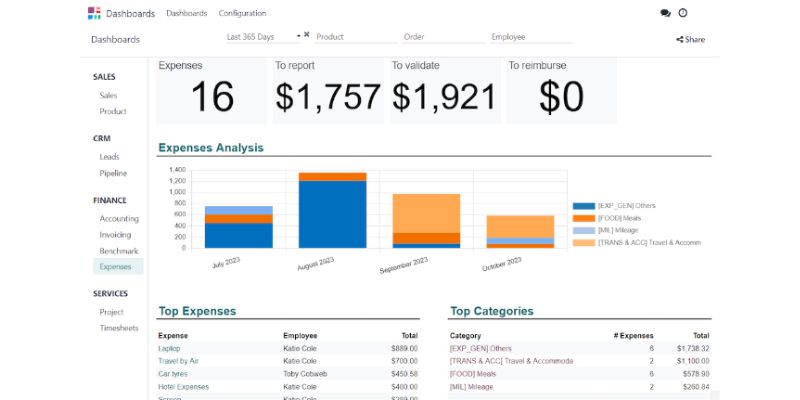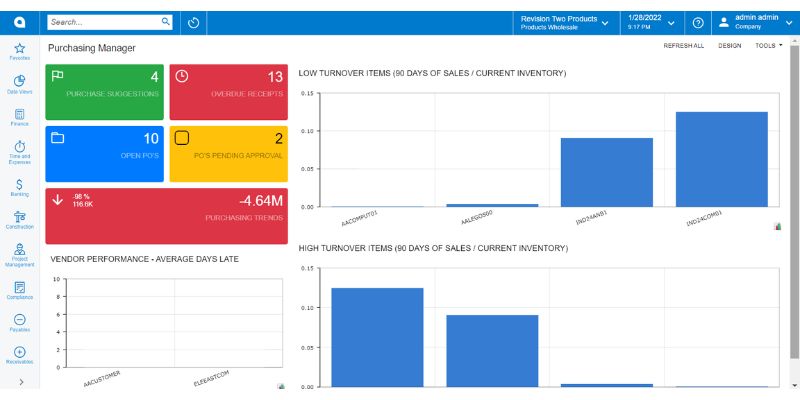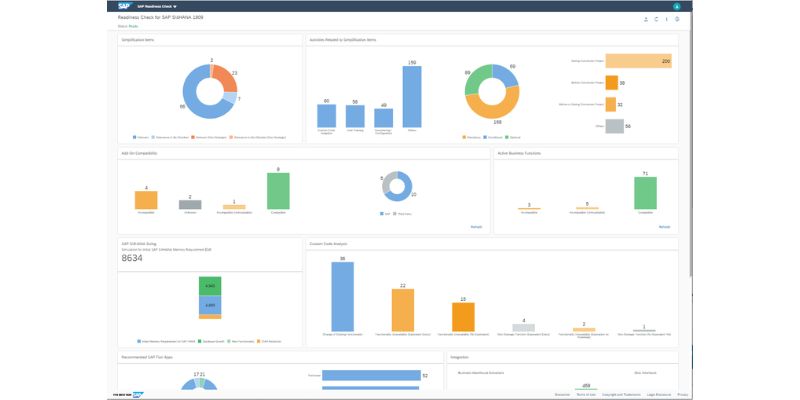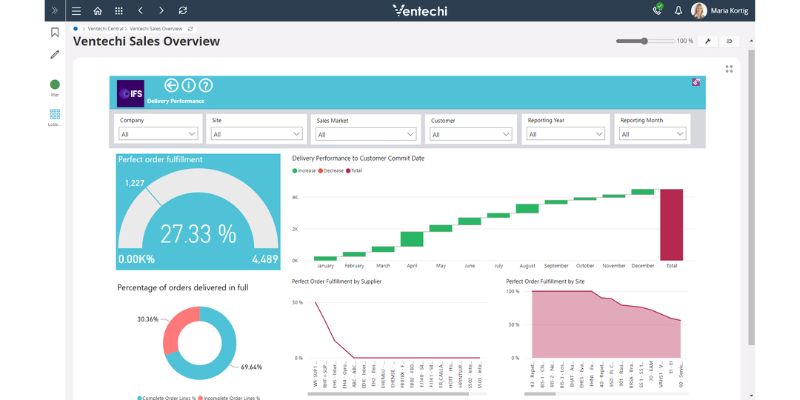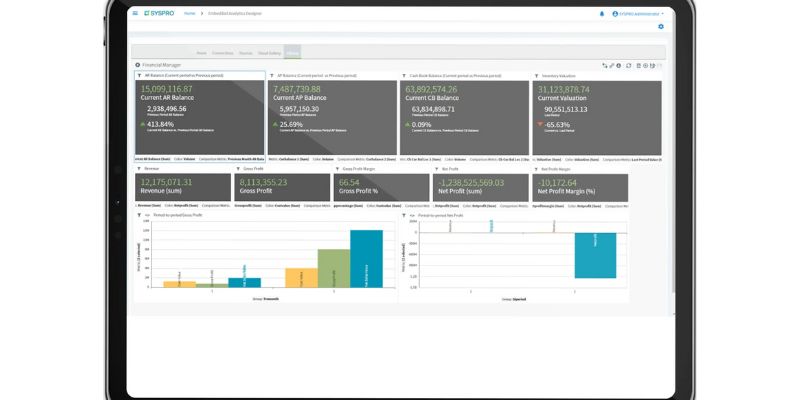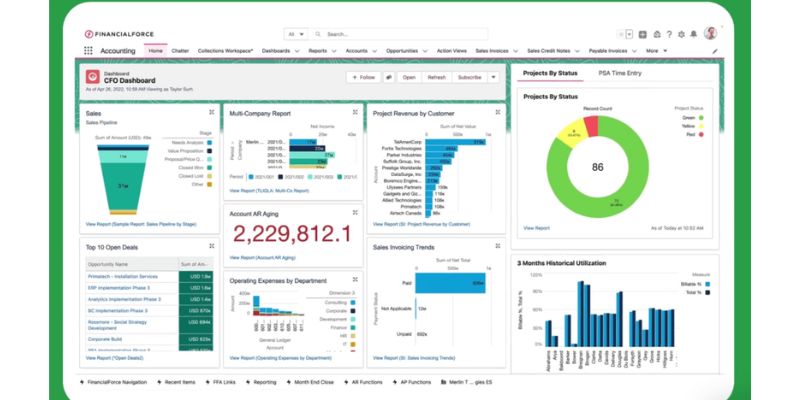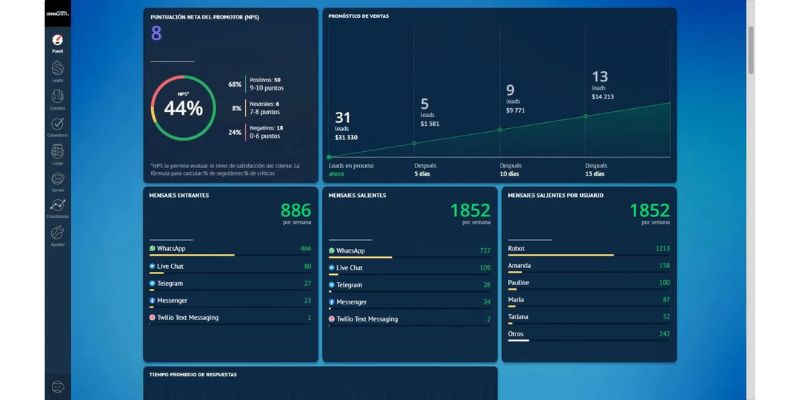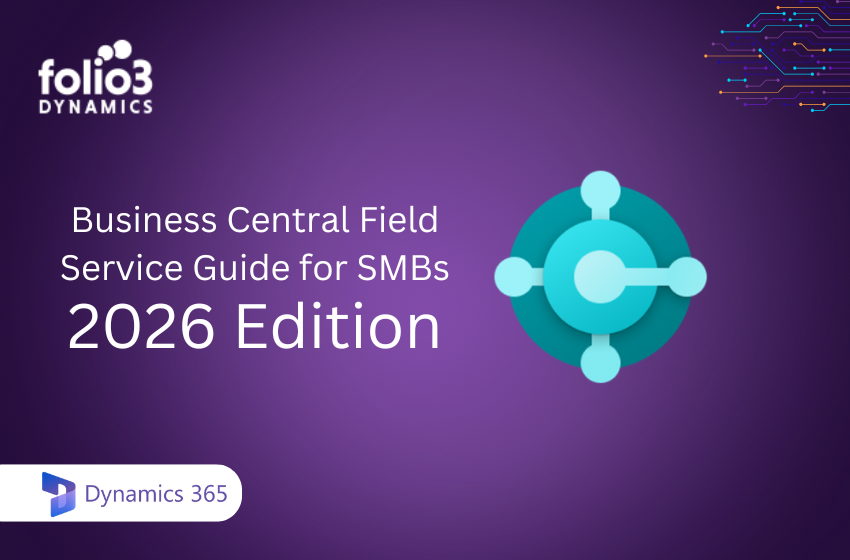Small business management is intense and dynamic, one thing is obvious: the right tools can make a big impact and make or break your business. In the current times when there is ever-increasing complexity and competition in the market, Enterprise Resource Planning (ERP) systems have appeared as an indispensable asset for small and medium-sized businesses (SMBs). They have helped streamline operations, boosting efficiency, and supporting long-term growth.
With the ERP market projected to reach an immense $40.5 billion by 2025, at a compound annual growth rate (CAGR) of 13.6%, it has become mandatory for small businesses to carefully evaluate all their options when selecting the right ERP system.
In this article, we will explore the 15 best ERP systems for small businesses, and discuss in detail their salient features, benefits, and considerations to help you make this important decision.
Why ERP Matters for Small Businesses
ERP systems provide small businesses with integrated solutions developed to manage important operations, such as financial management and inventory control. These systems enable businesses to become highly organized, improve communication, and respond to market demand proactively.
As time passes businesses change and evolve, and so does the complexity of managing multiple departments. Thus having an effective ERP system can uplift your business by centralizing data and providing real-time insights that are much needed for informed decision-making.
Key Benefits of ERP for SMBs
- Increased Efficiency: ERPs automate repetitive tasks and save valuable time and resources =, that can be then dedicated to high-priority tasks.
- Improved Scalability: As businesses grow, ERP systems can be easily modified to meet new demands without shifting to a different platform.
- Data Consolidation: ERP Systems centralize information, minimize errors, and provide a single source of information across the entire organization.
- Enhanced Decision-Making: Access to real-time analytics and business intelligence through these systems helps in strategic planning.
Selecting the Right ERP System
To select the best for your business and reap the benefits of your ERP investment, you must consider the following factors when assessing your options:
- Understanding Your Needs: You must identify the pain points and objectives of your business. Well-defined needs and requirements will guide you in your ERP selection.
- Team Involvement: You must make a dedicated project team that must include all stakeholders from key departments. Their input is invaluable during the evaluation process.
- Key Features: you must look for important features and capabilities, such as financial management, inventory controls, CRM functions, and reporting features, customized according to your industry.
- Cost and Implementation: Assessing the total cost of ownership, including initial investment, ongoing fees, and the time required for implementation and user training, are important factors.
- Customization and Integrations: Take into account how easily the system can integrate with other software that you currently use or may require in the future.
The 15 Best ERP Systems for Small Businesses
Now that we are aware of the importance of ERP systems and key considerations for selection, let us go through our carefully chalked-out list of the 15 best ERP systems for small businesses:
1. Microsoft Dynamics 365 Business Central
Microsoft Dynamics 365 Business Central is a cloud-based ERP solution, developed for SMBs. It integrates easily with the other Microsoft products and offers AI-powered workflows and real-time business intelligence through Power BI thus this makes it a good choice for companies that want to maximize their existing Microsoft environments.
2. Oracle NetSuite
It is one of the leading cloud-based ERP solutions, NetSuite is a complete suite that covers financial management, supply chain logistics, and CRM. Its ability to manage multiple subsidiaries effectively makes it an attractive option for growing businesses that are looking for scalable solutions.
3. Sage Intacct
It is famous for its strong financial management capabilities. Sage Intacct outshines in providing predictive insights and easy integration with various CRM tools. It is a good solution for businesses that want optimized financial operations.
4. Epicor
Epicor provides extensive manufacturing and distribution functionalities. These are valuable for meeting industry-specific needs. Its features like embedded warehouse management and real-time production monitoring facilitate businesses operating in the manufacturing sector.
5. Infor
Infor is hosted on AWS, and the Infor ERP is backed by AI-driven insights and industry-specific features, that are beneficial for small and medium businesses. Its high flexibility and intelligence make it a competitive choice among the available ERPs.
6. SAP Business One
Exclusively designed for small businesses, SAP Business One provides a unified platform for managing multiple aspects of the business. It covers everything from accounting to customer management. Its real-time analytics help in effective decision-making.
7. Odoo ERP
Odoo overcomes the typical pricing barriers owing to its open-source model. It enables users to customize their ERP experience to a great degree. Its modular applications make it a cost-effective and highly adaptable option.
8. Acumatica
Acumatica aims to provide a mobile-friendly ERP that focuses on user flexibility. Its cloud-based platform facilitates operational continuity and fulfills the modern business requirement of remote access.
9. SAP S/4HANA Cloud
It is a powerful platform that offers functionalities that fulfill various business needs, by utilizing AI and automation for enhanced efficiency.
10. IFS Cloud
IFS Cloud targets the mid-market companies. It provides features exclusively designed for manufacturing and supply chain management. Hence it provides customization for companies seeking industry relevance.
11. Tally Prime
It is well known for financial and inventory management. Tally Prime is prioritized due to its simplicity and user-friendliness, making it an excellent starting point for businesses that are new to ERP systems.
12. SYSPRO
SYSPRO focuses on advanced inventory optimization, customizable pricing, and features that exclusively support manufacturers and distributors. Its visibility into operational processes boosts overall efficiency.
13. Certinia ERP Cloud
Built on Salesforce, Certinia is an excellent choice for businesses that prioritize customer-centric financial management and compliance.
14. Workday
It provides a multitude of human resources and financial management solutions. Workday is known for its strong analytical capabilities.
15. Kommo
Initially a CRM with broader ERP functionalities, Kommo is the perfect choice for small businesses that give priority to managing customer interactions and sales pipelines effectively.
Key Takeaways for Small Businesses
Selecting the right ERP system can redefine how a small business functions, consolidating processes and improving decision-making. As you traverse the multitude of options available, keep the following in mind:
- Assess Your Business Needs: You must assess which features match best with your operational goals and challenges.
- Consider Scalability: Make sure that the chosen system can grow with your business.
- User Experience Matters: The system should be user-friendly to facilitate quick adoption without any resistance.
- Training and Support: Go for a vendor that provides good training materials and customer support. This is a must for smaller teams without extensive IT resources.
Conclusion: Finding the Best ERP for Your Small Business!
ERP software can transform a small business by automating routine tasks, improving data accuracy, and providing a unified, real-time view of the company. This leads to lower costs, faster decision-making, and the ability to scale efficiently. In choosing the best ERP for small business, focus on long-term value, select a solution that grows with you, offers strong support, and delivers a clear ROI within a year or two.
Ready to get started? Folio3 Dynamics specializes in helping SMBs evaluate and implement the right ERP solutions. Our experts can guide you through requirements gathering and implementation ensuring you choose a solution that fits your needs and budget. Contact Folio3 to discuss your ERP goals and receive a tailored plan. With the right ERP and a solid implementation partner, your small business will be well-equipped for growth in 2025 and beyond.
FAQs
When is the right time for a very small business to adopt an ERP system?
Once your business outgrows spreadsheets or basic accounting tools, and you’re struggling with duplicate data, manual errors, or scaling operations, it’s time to consider ERP.
What are the common pain points or challenges small/medium businesses face when using ERP software?
The biggest challenges are high upfront/ongoing costs, complex implementation, data migration issues, and lack of user training. Choosing the right vendor and proper planning can reduce these risks.
Is it better to use an open-source ERP or go with a paid/commercial solution for SMBs?
Open-source ERPs like Odoo are low-cost and flexible but need technical skills. Paid ERPs offer vendor support, faster deployment, and reliability, making them better if you lack in-house IT.
How scalable are small business ERP solutions, will they grow as the business grows?
Modern cloud ERPs are highly scalable, letting you add users, modules, or integrations as you expand. The key is choosing a vendor that supports long-term growth without re-implementation.
What does total cost of ownership (TCO) really include for small business ERP implementation?
TCO covers software licenses/subscriptions, implementation, training, customization, support, data migration, and future upgrades. Cloud ERPs often lower TCO compared to on-premises.
What features/modules are essential vs optional for small business ERP — what should be prioritized initially?
Start with core modules like finance, inventory, and order management. Add CRM, HR, or advanced analytics later as your business processes mature.
